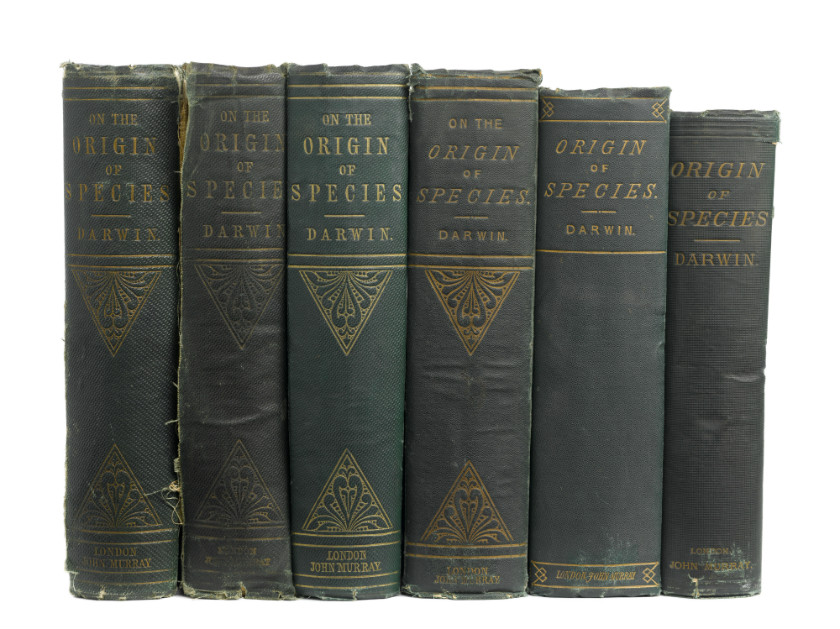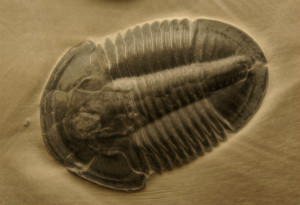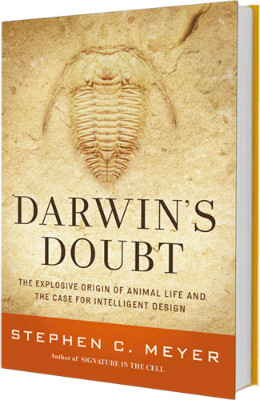Darwin’s Doubt about Evolution
Although the scientific and educational elites continue to insist that Darwinian evolution is the only credible explanation for the development of living things, and by implication, their origin from inanimate matter, the solid citizens who normally take their pronouncements on trust, don't seem so sure.

Public acceptance of evolution as a credible explanation of origins hovers around a modest 40% of the population, to the considerable dismay of the scientific establishment [1].
But perhaps we shouldn't be overly surprised by this. Even Charles Darwin, the celebrated architect of the evolutionary hypothesis, had grave doubts about it. In particular, he had substantial doubts about whether the fossil record supported it.
His theory of gradual evolutionary change required ‘numerous, successive, slight modifications.’ [2] However, there were two connected observations that troubled him:
If his theory of evolution was correct, there should be millions of transitional forms in the fossil record, and they were very elusive indeed. He conceded the point in these words:
‘The number of intermediate varieties, which have formerly existed on earth, must be truly enormous. Why then is not every geological formation and every stratum full of such intermediate links? Geology assuredly does not reveal any such finely graduated organic chain.’ [3]
Equally disturbing were fossil finds like the ‘Cambrian explosion’ where thousands of new animal forms appeared without any obvious ancestors. Again Darwin wrote:
‘The difficulty of understanding the absence of vast piles of fossiliferous strata, which on my theory were no doubt somewhere accumulated before the Silurian (ie Cambrian) epoch is very great. I allude to the manner in which numbers of species of the same group suddenly appear in the lowest known fossiliferous rocks.’ [4]
Since Darwin’s theory of evolution requires that every slight modification to a body plan must be viable in order to survive, there should be millions of intermediate forms. They are clearly not there.

Of course, Darwin expected that as more fossils were discovered, the gaps would be filled. But it has not proved to be the case. In fact the situation in terms of evidence for evolution has only got worse. So much worse that it can reasonably be claimed, as Darwin feared, that the fossil record actually refutes the theory of evolution.
It all adds up to a very serious crisis for neo-Darwinism. No wonder the Harvard palaeontologist Stephen J Gould declared in 1980 that neo-Darwinism is ‘effectively dead, despite its persistence as textbook orthodoxy.’ [4]
This rather shocking story about the fossil evidence for evolution is the subject of a new book from Dr Stephen Meyer, a Cambridge PhD and Director of the Centre for Science and Culture in Seattle USA.

His book, Darwin’s Doubt, published by HarperOne in June 2013 and available on Amazon, is a comprehensive analysis of the challenge to paleobiologists of explaining the sudden appearance in the fossil record of numerous new life forms without any obvious ancestors. In analysing the hugely complex steps required to generate new body plans, Meyer argues that the gradual and random changes required by neo-Darwinism are simply unequal to the task. His book is a devastating critique of the misguided use of the fossil record to sustain the failing theory of Darwinian evolution.
So you ask, if the theory of evolution is in trouble, what will replace it? Well, that depends on what kind of explanations you are prepared to allow. If you adopt the obligatory naturalistic philosophy of the current scientific consensus, you’ve really nowhere to go, and you’re almost bound to get the wrong answer.
But if you want to go where the evidence leads, then you’ll recognise that the appearance of new body plans requires fresh genetic information. That will lead you to the conclusion, based on all contemporary experience, that information is always the product of intelligent mind. In scientific jargon, that’s an ‘inference to the best explanation’.
This, of course, is the theory of Intelligent Design (ID) which Dr Meyer proposes and a growing number of scientists are beginning to recognise. Meyer elaborates the inference to design powerfully in his new book, and also in his previous work Signature in the Cell (HarperOne 2009). In that latter book, he explores with devastating clarity the need to recognise intelligent mind as the only possible source of the information carried in all our genes.
It is high time we stopped being taken in by dishonest hand-waving and baseless assertions, and just go where the evidence leads.
It seems Darwin’s doubts about the fossils were well founded.
Dr Alastair Noble, Director
Revised June 2016
References
[1] See for example ‘Rescuing Darwin’, Theos, 2008
[2] Origin of Species, pub Oxford University Press, 1996, p141
[3] Ibid, p226-7
[4] Ibid p249
[5] Gould, ‘Is a New and General Theory of evolution emerging?’ p120, Paleobiology, Vol. 6, No 1 (Winter, 1980) ;
Image credits:
Thumbnail - This work is from the George Grantham Bain collection at the Library of Congress. According to the library, there are no known copyright restrictions on the use of this work.
On the Origin of Species - from Wellcome Images on Wikimedia Commons
Fossil - Wikimedia Commons - Public domain
Darwin's Doubt - Discovery Institute Press